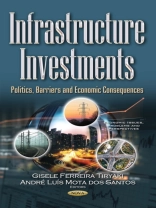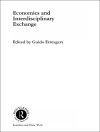Gisele Ferreira Tiryaki holds a Master of Arts degree in economics from Northeastern University (Massachussets, USA) and a Ph.D. degree in economics from George Mason University (Virginia, USA), granted in 1996 and 2001, respectively. Ms. Ferreira Tiryaki worked as a consultant at the World Bank headquarters in Washington D.C. for four years, researching about private participation in infrastructure projects in developing countries. After working as a professor for Anadolu University (Turkey) between 2002 and 2006, Ms. Ferreira Tiryaki moved to Brazil, where she was granted a research and teaching position at the Master program in Energy from Universidade Salvador (Bahia). Since 2009, she has worked as a professor at the Economics Department of Universidade Federal da Bahia, where she has devoted time researching about infrastructure regulation, industrial organization and applied macroeconomics. The quality of infrastructure services is key to the production and trade of goods and services, contributing to the productivity and competitiveness of an economy. Efficient infrastructure services also promote the wellbeing of the population by boosting labor productivity. Altogether, infrastructure investment tends to promote greater economic growth. Infrastructure provision involves investments in capital intensive assets with long term maturity and high levels of sunk costs. Thus, identifying the risk factors and barriers to the efficient provision of energy, transport, telecommunication and water services, as well as designing policies conducive to such initiatives are essential. Macroeconomic stability, improved governance institutions, and appropriate regulatory measures are some of the aspects which need to be addressed in order to avoid infrastructure bottlenecks that compromise long term economic growth. Political and regulatory matters are particularly relevant to the performance of infrastructure initiatives, especially to those that involve private sponsors, due to the large scale and scope of economies that are often present in most infrastructure ventures. This book aims to provide a thorough review of the fundamental issues being currently discussed with regards to initiatives in infrastructure sectors. Relying on statistical and econometric analyses, as well as on case studies and in depth literature surveys, this text hopes to provide a diagnostic of the relevant aspects to be addressed when planning and executing long term infrastructure investments.Target Audience:Professionals and academicians who are interested in the determinants of infrastructure investment; people working in the energy, transport and sanitation industries; regulatory agencies’ personnel; multilateral institutions employees (e.g. World Bank, IFC, IADB, EIB, CAF, CABEI, Af DB).
Andre Luis Mota dos Santos & Gisele Ferreira Tiryaki
Infrastructure Investments [PDF ebook]
Politics, Barriers and Economic Consequences
Infrastructure Investments [PDF ebook]
Politics, Barriers and Economic Consequences
Acquista questo ebook e ricevine 1 in più GRATIS!
Formato PDF ● Pagine 228 ● ISBN 9781536108088 ● Editore Andre Luis Mota dos Santos & Gisele Ferreira Tiryaki ● Casa editrice Nova Science Publishers, Inc. ● Pubblicato 2018 ● Scaricabile 3 volte ● Moneta EUR ● ID 6890135 ● Protezione dalla copia Adobe DRM
Richiede un lettore di ebook compatibile con DRM












